China Arts & Entertainment
CCTV Spring Festival Gala 2018 (Live Blog)
It’s time for the CCTV 2018 New Year’s Gala – follow the highlights and the low points here.
Published
6 years agoon
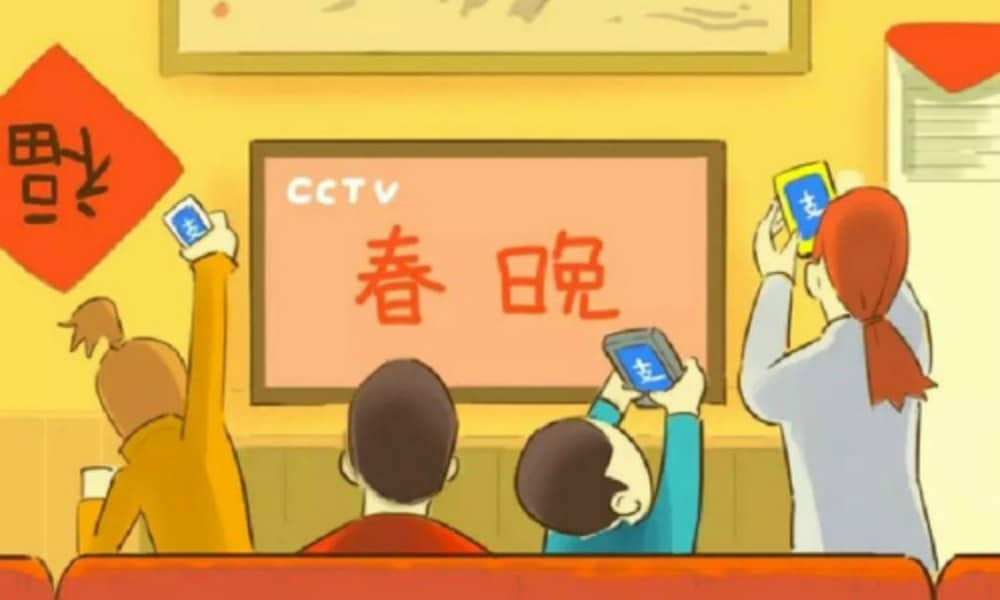
It is time for the CCTV Spring Festival Gala, one of the most-watched, most-discussed, and most mocked lived television events in the world, taking place on the Lunar New Year’s Eve. What’s on Weibo discusses the ins & outs of the 2018 edition and the social media frenzy surrounding it in this live blog. [Premium content]
Check out our CCTV Spring Festival Gala 2019 Live Blog here.
The biggest live televised event in the world, the CCTV New Year’s Gala, also known as the Spring Festival Gala or Chunwan (春晚), is a true social media spectacle. On February 15th 2018, the 36th edition of the 4-hour-long live production is taking place.
The show, that is organized and produced by the state-run CCTV since 1983, is not just a way for millions of viewers to celebrate the Lunar New Year (除夕); it is also an important opportunity for the Communist Party to communicate official ideology to the people and to showcase the nation’s top performers.
Watch the live stream here on What’s on Weibo (if you have no access to YouTube, please check the CCTV live stream here).
What’s on Weibo provides you with the ins & outs of the 2018 Gala and its social media frenzy, with updates before, during and after the show. Follow our liveblog below (we recommend you keep your browser open – you’ll hear a ‘beep’ when updated). (Note: this live blog is now closed, thank you!).
15/02 10:17 About the Gala (3,5 hours to go!)
Just 3,5 hours to go before the start of the show, so we have the time to tell you a bit more on the Gala if you’re not so familiar with it. Since its very first airing in 1983, the Spring Festival Gala has captured an audience of millions. In 2010, the live Gala had a viewership of 730 million; in 2014, it had reached a viewership of 900 million, making the show much bigger in terms of viewership than, for example, the Super Bowl.
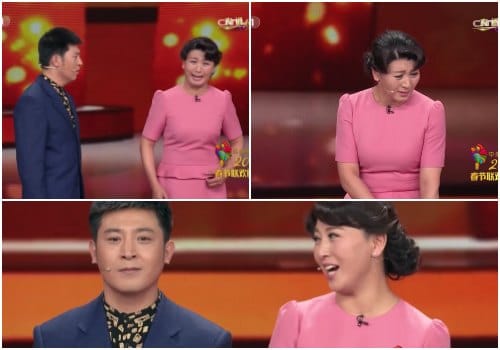
As viewer ratings of the show in the 21st century have skyrocketed, so has the critique on the show – which seems to be growing year-on-year. In 2016, the criticism was so overwhelming that CCTV’s official Weibo account even temporarily shut the comment section on the show. The show lasts a total of 4 hours, and has around 30 different acts, from dance to singing and acrobatics. The acts that are both most-loved and most-dreaded are the comic sketches (小品) and crosstalk (相声); they are usually the funniest, but also convey the most political messages. (The controversial 2017 CCTV Spring Gala sketch ‘Long Last Love’ where a woman wants to divorce her husband for not being able to conceive.) For the general viewers and social media users, mocking the show has become so commonplace that the sentence “There’ll never be a worst, just worse than last year” (“央视春晚,没有最烂,只有更烂”) has become a well-known idiom connected to the Gala.
15/02 12:29 What can we expect of the CCTV Gala this year?
It’s almost show time! Tonight’s show will feature a total of 42 acts over a time span of 4 hours. Like last year, the show will be broadcasted from various places besides its main venue in Beijing’s CCTV’s No.1 Studio. Central to the theme of this year’s Gala is China’s rising power, reflecting on both the Silk Road and the 40 Year Anniversary of Deng Xiaoping’s Reform Policy. What is noteworthy about tonight’s programme is its many Taiwanese performers – a majority of tonight’s big name singers are Taiwanese. Also noteworthy is that although “innovation “ is key to the Gala’s theme tonight, it has many of the same presenters as previous years. Also, one of the acts that drew a lot of attention last year, namely Jackie Chan performing a song named “Nation”, seems to be repeated in a way: Jackie Chan will perform a song titled “China” tonight.. The song drew critique last year for being too political. According to many viewers, the spectacle generally is often “way too political” with its display of communist nostalgia, including the performance of different revolutionary songs such as “Without the Communist Party, There is No New China” (没有共产党就没有新中国). Although there are no titles of tonight’s acts that explicitly mention the Party, we can probably expect the same complaints on Chinese social media.
15/02 12:28 Can You Spot ‘CCTV Gala Brother Smile’ Tonight?
The CCTV Gala is an annual source of memes on Chinese social media. One person who went viral last year is “‘CCTV Gala Brother Smile’ (#春晚笑脸哥#)”. Directly after the ending of the CCTV Gala in 2017, many Weibo netizens discussed one person in the audience – observant viewers have spotted the very same man in the audience of the CCTV Gala every year since 1999. The man was nicknamed ‘CCTV Gala Brother Smile’ (#春晚笑脸哥#) because he always smiles.
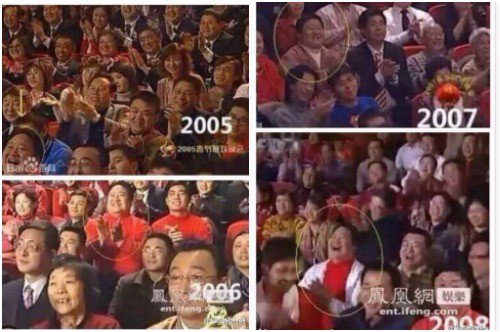
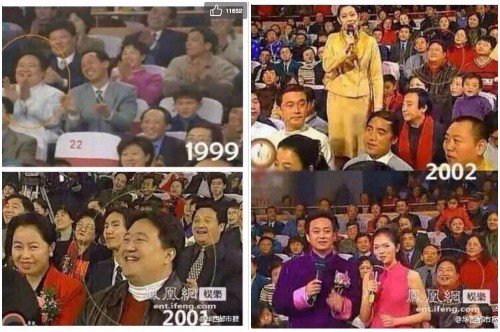
Many netizens are extremely curious about the man, wondering how he came to sit from the back of the audience to the front crowd throughout the years. Some also compliment him for not having changed much over the past 18 years. If you spot him tonight, let us know!
15/02 12:57 Tonight’s CCTV Gala Venues
Like last year, the show will be broadcasted from various places besides its main venue in Beijing’s CCTV’s No.1 Studio, namely from Qiandongnan, an autonomous prefecture in the southeast of Guizhou province, Zhuhai (Guangdong), Qufu (Shandong), Tai’an (Shandong), and Sanya (Hainan).
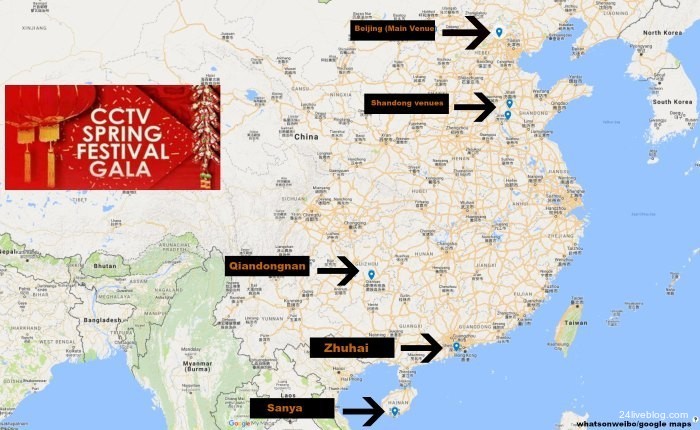
It is a tradition for the Gala to have subvenues where it broadcasts from. In 2016, the Gala was aired from Quanzhou, Xi’an, Guangzhou and Hulun Buir. In 2017, it was broadcasted from Harbin, Guilin, Shanghai and Liangshan. Every city has its own hosts, who often welcome the audiences in their own local dialect or language, with performances that are related to the region. In 2016, the spectacular performance of singer Sun Nan (孙楠) who danced with 540 moving robots, for example, reinforced the image of Guangdong as the home of China’s tech startups.
15/02 13:07 Here We Go! “China’s Colorful Years”
The show has begun! In this opening act, that presents the years of PRC history as “thousands of purples and reds” (“万紫千红中国年”), there are various artists from mainland China, Hong Kong, and Taiwan. From Hong Kong, there is the award-winning singer and actress Joey Jung (容祖儿). From Taiwan, there’s the former F4 pop group member Vic Chou. Other artists in this opening act are Phoenix Legend (凤凰传奇), a Chinese popular music duo of female vocalist Yangwei Linghua and male rapper Zeng Yi, actress and TV anchor Hu Ke with husband actor Sha Yi, and others.
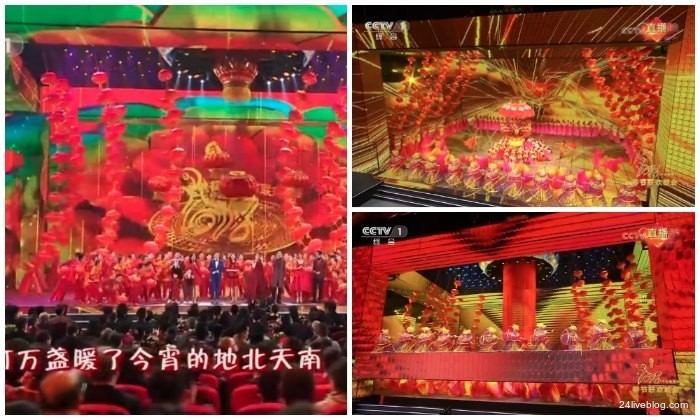
15/02 13:15 The Presenters
The presenters now welcome everyone to the Gala. This year’s presenters of the Gala are Kang Hui (康辉), Zhu Xun (朱迅), Ren Luyu (任鲁豫), Li Sisi (李思思), and Nëghmet Raxman (尼格买). Three of them, namely Kang, Zhu, and Raxman, were also presenters in the 2017 New Year’s Gala. All of the hosts are familiar CCTV faces.

The ladies:
Zhu Xun (1973) is a well-known presenter and actress from Suzhou, who is presenting the Gala for a 5th time now. Li Sisi (1986) is the youngest presenter tonight; she is a Chinese television host and media personality most known for her role as host of the Gala since 2012.
The gentlemen:
Kang Hui (1972) is a Hebei-born influential CCTV news anchor. Ren Luyu (1978) is a Chinese television host from Henan, and he has previously presented the Gala in 2010 and 2016. Nëghmet (1983) is a Chinese television host of Uyghur heritage who also is not a newcomer; he hosted the Gala since 2015.
In the subvenues, there will be different hosts, but most of them are also familiar faces (so far goes the “new” theme of tonight…):
Guizhou: Ma Yue (CCTV) and Dou Aili (Guizhou radio and television host).
Guangdong: Yang Fan (CCTV) and Gui Jiachen (Zhuhai TV).
Shandong (Qufu & Tai’an): Li Jiaming (CCTV), Li Yi (Shandong radio and television).
Hainan: Zhang Zequn (CCTV), Wang Si (Hainan radio and television host.
15/02 13:14 Director & Theme: Chinese Values, Chinese Power
While we are watching the spectacles across the different venues, a little bit about the director and theme of tonight’s show. After themes such as the “Chinese Dream” and “Family Affinity”, this year’s theme revolves around “Chinese values, Chinese power.” One of the most important dimensions of this year is that it commemorates the 40-year-anniversary of China’s Economic Reform Policies (改革开放) initiated by Deng Xiaoping in 1978.
This year’s director is Yang Dongsheng (杨东升) from Guangdong (see picture below), who is directing the Gala for the second year in a row. According to Sina News, the word “NEW” is central to this year’s Gala. As we’ve seen in last years, with spectacular Avatar-like settings for dance and singing acts in 2017, and the 540-dancing-robots-act in 2016, the display of ‘innovation’ in entertainment has become an important new characteristic for the Gala.
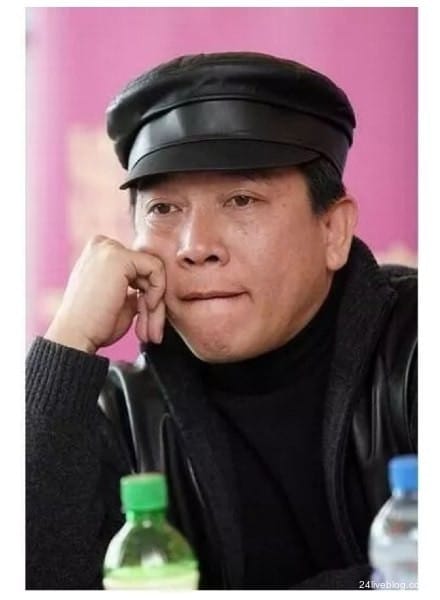
15/02 13:19 “Happy Holiday” Dance (All Venues)
In this first act across all venues there are people from several countries, including China, Russia, and the UK. China’s One Belt, One Road initiative also plays an important role tonight, so a more international programme can be expected. One of the main dancers here is Aoyue Zhang (张傲月), the winner of “So You Think You Can Dance China” and the “Most Popular Chinese Dancer.”
15/02 14:17 Sketch: “Real or Fake Teacher”
This is the first comical sketch tonight, and we can expect many more to come. Last year, many people could not appreciate the message constructed in the Gala’s sketches that emphasized the woman’s role as mother and wife, such as the narrative where a woman depended on her husband’s money or the one where a wife wanted to let her husband divorce her because she could not conceive children (which was in a sketch titled ‘Long Last Love’ 真情永驻). Many felt the sketches propagated women to have children, some said they depicted women as “breeding machines.”
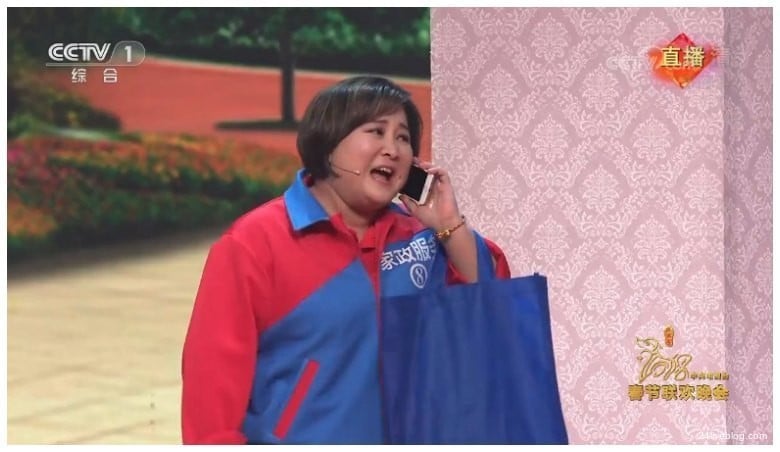
This sketch features a house cleaner who is hired by a young man to pretend to be his mother for a teacher’s family visit, since his own parents work and live abroad. But then it turns out his father is not abroad at all- he pays his son a surprise visit. The boy is not doing well at school in terms of his behavior. A moral of the story is the student are not always to blame; the parents are also responsible.
15/02 13:39 “Chunwan Roast” Hashtag Censored on Weibo
The CCTV Gala has not even reached its first hour, and already the hashtag “Spring Festival Gala Roast” (春晚吐槽) has been censored on Weibo.
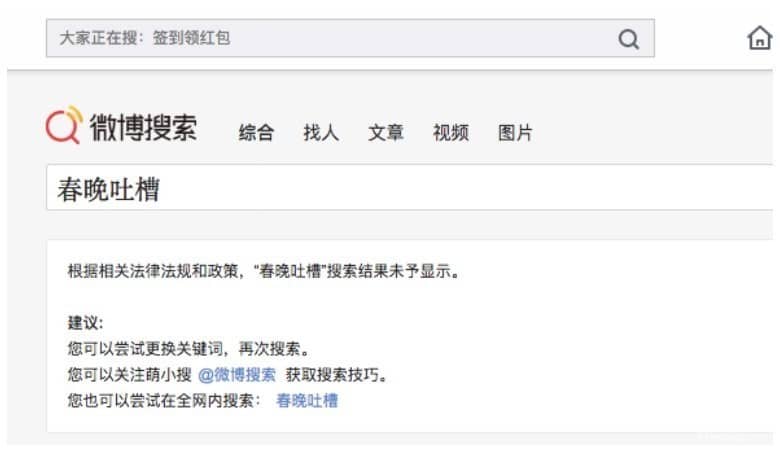
Mocking the CCTV Gala has become a tradition over the years. As aforementioned in this liveblog, “There’ll never be a worst, just worse than last year,” is an idiom that always comes up in relation to the Gala.
On Weibo, netizens are not happy that the hashtag used to mock the Gala has been censored.
15/02 13:47 Song “Praise The New Era”
The title of this song is representative of tonight’s theme – CCTV is pushing the “new era” (新时代) as a concept on social media too – they even have a separate section for the hashtag on Weibo.
One of the singers here is the popular Chinese singer and actor Li Yifeng (1987), who broke into entertainment after competing in the “2007 My Hero” talent search. He is accompanied by actress Jing Tian (1988) and Maggie Jiang (Jiang Shuying, 1986).
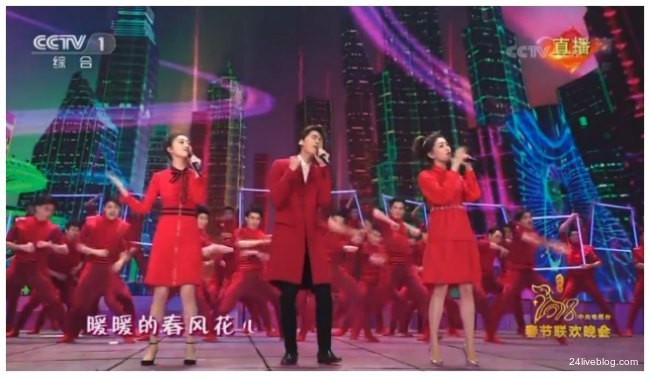
20/02 13:03 Sketch “Driving Class”
Another sketch, of which there will be many tonight. This one features famous actors Cai Ming, Jia Bing and Pan Changjiang.
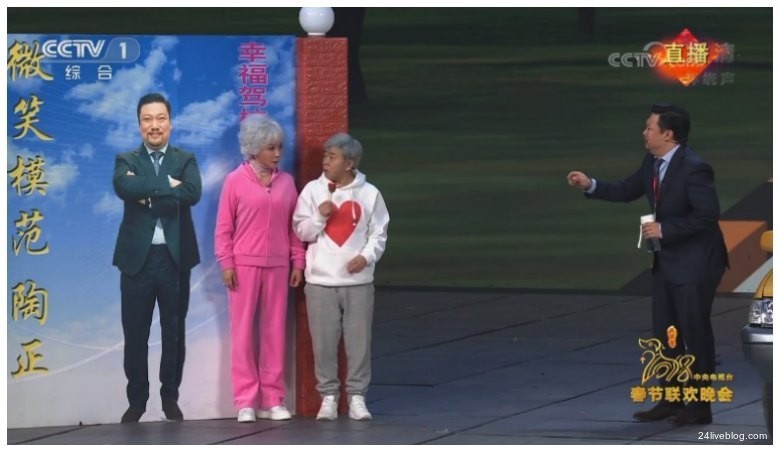
The sketch is about an older couple, whose love and relationship is inspiring a younger driving instructor. The older lady’s husband only has another three months before he turns 70, and they want to learn how to drive a car in order to make a big magical road trip together. It encourages the driving instructor to convey his feelings to his true love.
15/02 14:03 Move over to Guizhou!
Guizhou’s Qiandongnan is the first subvenue to be featured tonight. This first song, the “Joyous Song” was performed by the Liping County Singing Group, which belongs to the ethnic minority of Dong. The Kam a.k.a. Dong (侗) are a Kam–Sui people of southern China, and they are one of the 56 ethnic groups officially recognized by the People’s Republic of China. They are famous for their carpentry skills, unique architecture, and sweet rice.
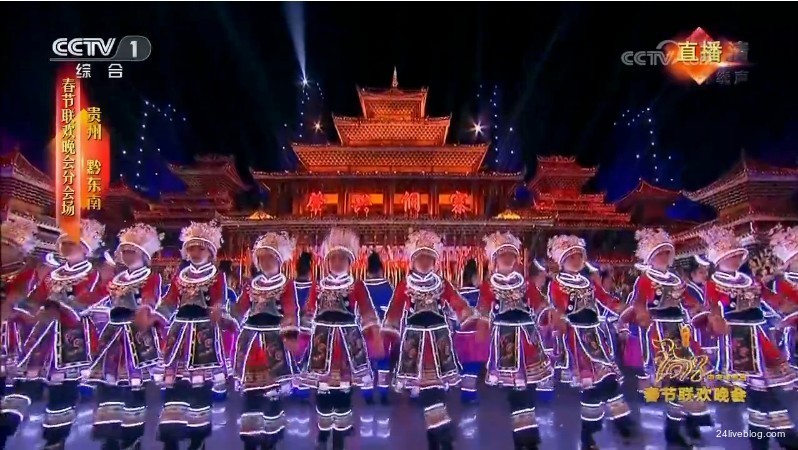
Amidst the spectacular scenes we see Taiwan singer Lin Zhixuan (林志炫), better known as Terry Lin (1966), who performs a song titled “The Drums of the Sun.”
The singer Ayouduo (阿幼朵) is a famous Hmong/Miao singer, she sings the song titled the “Sunset Duet.”
5/02 14:06 Jay Chou and Will Tsai
One of the most-anticipated acts tonight. The song “Love Confession Balloon” is a song by Jay Chou, who is on stage here. Jay Chou is a Taiwanese singer who is also called “Asia’s King of Pop.” He is joined here by Taiwanese-Canadian magician Will Tsai (蔡威泽), who participated in America’s Got Talent in 2017.
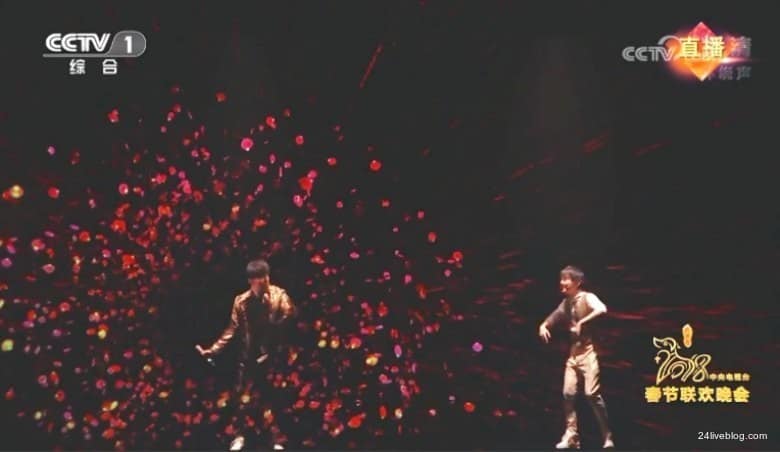
Will Tsai magically makes Jay Chou appear on stage.
15/02 14:10 PUBLIC SERVICE AD: PROSPEROUS HOME COUNTRY
During the CCTV Gala, there will be several two-minute public service ads that reflect on important societal issues and propagate government messages. This is the first one, in which dogs play a central role, since, obviously, the Year of the Dog is about the start in just a few hours.

15/02 14:26 The Children’s Song
Every year at the Gala, there will be a special performance focused on the kids. While it was dancing vegetables last year, this year sees dancing panda bears and dogs.

15/02 14:31 Comical Sketch: “Returning Home”
We’ve come to the 11th act of tonight, featuring Taiwanese actors Fang Fang, Zhang Chenguang, Du Zhulin, and also Wang Ji. This item is about coming home for New Year’s, in which we see a familly who bought towels from Taiwan to give to their Shandong family – but the towels are actually made in Shandong.
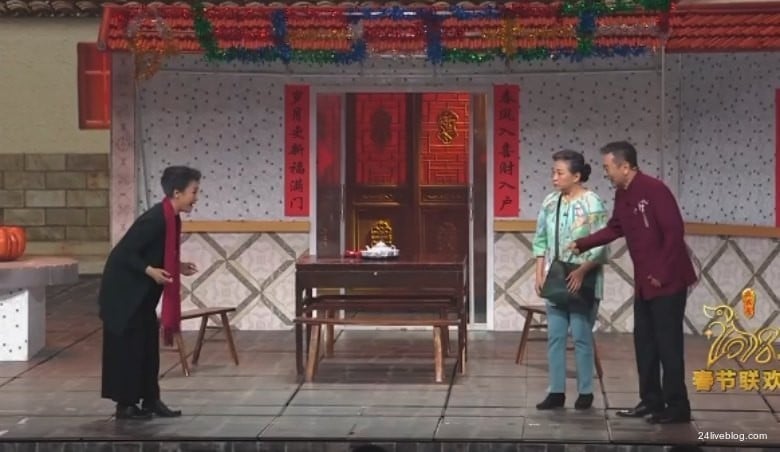
Last year, the Gala drew some criticism for featuring too many northern Chinese dialects. This year is significantly different, as the various acts have already presented various different dialects from across China. The actors in this sketch use a Taiwanese accent/dialect.
In general, this year’s show’s focus on Taiwan is really remarkable; not just in terms of singers coming from Taiwan but also the sketches using storylines that include Taiwan. It is especially noteworthy that this sketch’s title is “homecoming” or “returning home”, suggesting the ‘homecoming’ of Taiwan to the mainland.
The moral of this sketch is that people from Taiwan have never forgotten their “Chinese roots”, and that Taiwan and mainland China have an unbreakable connection.
15/02 15:01 The Reunion Between Faye Wong and Natasha Na
Another act tonight that was a much-anticipated one is this one featuring singer Wang Fei aka Faye Wong and Chinese vocalist Natasha Na (那英). The act is seen as a “reunion” between two of China’s greatest singers after 20 years. In 1998, a cooperation between the two on the very same stage was a great success across China.
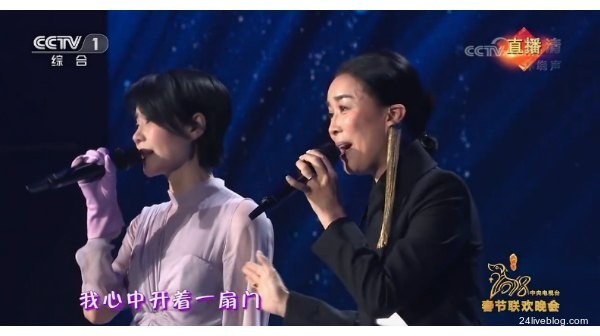
15/02 14:53 Silk Road Painting Returns to Beijing
A special item in today’s program is the “homecoming” of a Chinese painting on the Silk Road – which clearly emphasizes the One Belt One Road theme. On stage are Chinese director Zhang Guoli and the Department Head of Palace Museum Shan Jixiang.
The painting is over 30 meters long and has been abroad for a long time. It is now “returning to the motherland” after it has been bought by the billionaire Xu Rongmao – he has donated it to the museum to “protect China’s heritage.” Those who are interested can watch the details of the painting the Palace Museum official website tomorrow.
The ensuing dance to this ceremony also focuses on the Silk Road.
15/02 15:12 Comical Sketch “Objections”
Depending on where you are live-streaming the Gala from (iQiyi, CCTV website, and YouTube channel all have some slight differences in airing the live event), we have now reached the 15th act of tonight, which is another comical sketch. This year, the Gala is featuring quite a lot of sketches; six in total.
Another genre is the ‘crosstalk’, which we’ll see later in this show. This particular act critiques doing business through “taolu” (套路), Chinese routines to do certain things according to ‘secret’ rules instead of taking the official road; it also suggests that leaders are spending too much time talking and socializing rather than actually doing things. The female protagonist in this act is actually giving the good example, who is all about cutting down on useless meetings, keeping in touch with the common people, and being open to more suggestions.
15/02 15:11 Over to Zhuhai, Guangdong Now!
After Guizhou, it is now time to shine for the subvenue in Shandong’s Qufu and Tai’an. While the song “Courage” is sung, we see some serious acts going on with motorcycles jumping through fire.
Really so many Taiwanese singers tonight! During this act we see Canadian-Taiwanese vocalist Pai Weijun (派伟俊) aka Patrick Brasca, who is a pop singer and songwriter known for singing the theme song “Try” of the film Kung Fu Panda 3.
15/02 15:22 “My Spring Festival, My Year”
It is remarkable how few traditional Communist-themed acts we’ve seen thus far. During the 17th act of the night, we see Wang Kai and Yang Yang with a sentimental song about the years passing by. It really suits the evening, which is also about looking back on the past 40 years since the Reform Policies and the “rise of China.”
Noteworthy: the children on stage are so-called “left-behind children” (留守儿童) from rural areas who are separated from parents who are working in remote urban areas. Earlier this year, the case of the “Yunnan Ice Boy” increased awareness of the difficult and poor conditions many of these children are in.
15/02 15:18 Here Comes the Crosstalk
This is the night’s first crosstalk (相声) scene. Different from the other sketches (小品), crosstalk usually involves two actors with one being the “joker” and the other being the “teaser”.
The actor in the middle, Feng Gong (冯巩), is one of China’s most renowned xiangsheng performers. He is best known for his performances in this CCTV New Year’s Gala, and has made more appearances on the show than any other major performer.
15/02 15:29 Song “Mountain Laughter”
There are many young vocalists tonight, but Lu Jihong and Zhang Ye are among the more traditional singers tonight.
15/02 15:40 CHINA by Jackie Chan!
Here he is again together with Wu Jin! Last year, Jackie Chan’s much-anticipated appearance on the show turned out to be somewhat cringeworthy. The Hong Kong singer and kung fu star showed his love for China through a song that was simply titled “Nation” (国家). In this act, the Hong Kong celebrity stood in front of an enormous Chinese flag together with students from the mainland, Taiwan, Hong Kong, as well as ethnic minorities.
Although the use of sign language by all the performers was praiseworthy, the song came after a night that had already seen many big flags, many dancing minorities, and the message of China’s national unity was already – not so subtly – propagated at every possible opportunity. Many netizens, however, did like the performance; some even claimed it was their “favorite act of the night.”
This time, Jackie again sings a somewhat cringeworthy song that is just titled “China” and which praises China and how much the singers love their motherland. The dancers in the back form the character ‘Zhong” for Zhongguo (China).
15/02 15:35 Is This Show Really Live?
Is this really live? Yes it is. But although the Gala is a live broadcast from CCTV’s No.1 Studio, and its other venues across China, every year’s show has a taped version of the full dress rehearsal. The tape of the official rehearsal runs together with the live broadcast, so that in the event of a problem or disruption, the producers can seamlessly switch to the taped version without TV audiences noticing anything.
15/02 15:45 Moving Over To Shandong
After the Gala’s traditional martial arts segment, we now move over to Shandong, where the song “Descendents of the Dragons” (龙的传人) is performed by Huang Xiaoming (黃曉明, 1977) and Hong singer Wallace Chung, Taiwan singer Jerry Yan, and Macao singer Xia Li’ao (夏利奥).
This is followed by the piano concert ‘Ode to the Yellow River’ played by the 35-year-old Chinese classical pianist Li Yundi and award-winning Chopin specialist Sa Chen (1979).
15/02 15:54 Piece of Africa?
Back to Beijing. Or well….dozens of African dancers join the stage with lions and zebras to do a Loin King type of act, but it seems somewhat misplaced? Wait, let’s see…
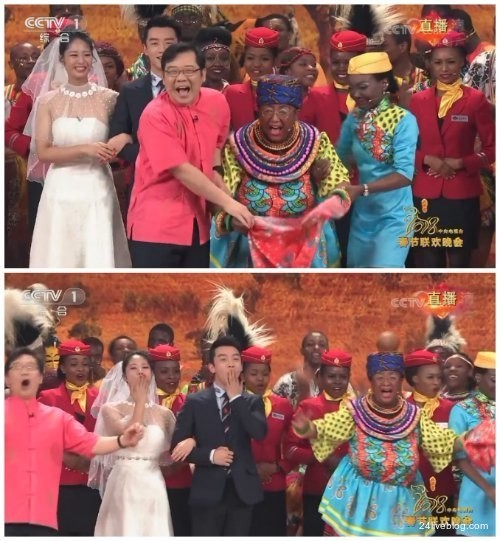
It is a ‘xiaopin’, one of the night’s short sketches, and it takes places in Africa, focusing on the new railway connections (emphasizing the One Belt, One Road intiative). On Twitter and Weibo, however, the sketch is receiving some critique.
15/02 16:15 Some more images of the Africa sketch
The title of the sketch is “Share the same Joy and Happiness”《同喜同乐》and is actually meant to promote China-Africa relations. Not sure if it worked…Many reactions on social media deeming the sketch “racist.”
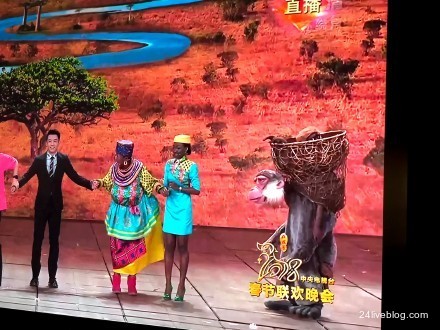
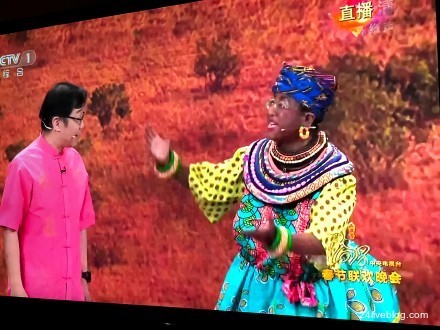

15/02 16:09 27th Act Tonight…
This is the night’s first Chinese opera segment featuring one of China’s leading Peking-Opera artists: Meng Guanglu.
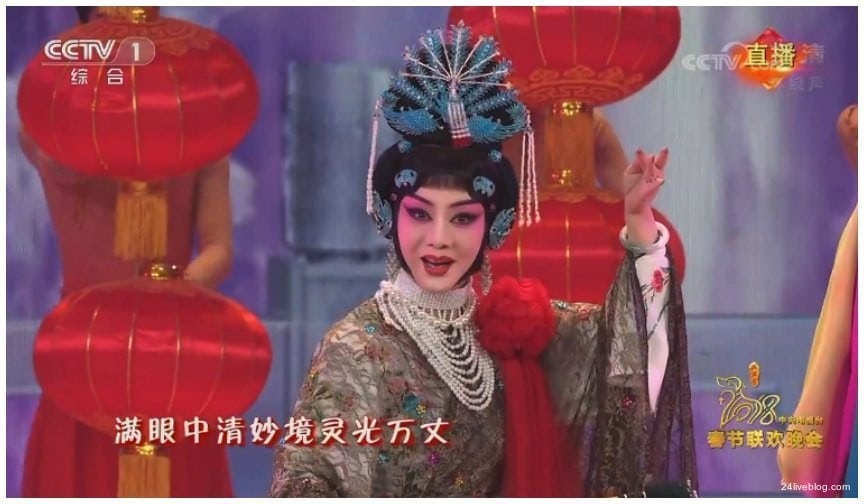
15/02 16:13 Remembering 40th Anniversary of China’s Reform & Opening-up
In this song, titled “Rise Again”, China’s Reform and Opening-up policy of 1978 is commemorated. The singer Han Lei is accompanied on stage by a group of young dancers wearing a red scarf. The images in the back display images representing a developing China.
15/02 16:44 Running from one act to the next
Just a bit more than 30 minutes to go before the clock strikes twelve! Meanwhile, tonight’s 4-hour-show seems to proceed with unusual speed, moving from one item to the next within minutes or even seconds.
After a (very brief!) moment to honor some of China’s “model workers”, it is time for some acrobatics. The act “Above the Waves” features the athlete Hu Shi.


On Twitter, meanwhile, discussions on the Africa sketch continue…
15/02 16:27 “New Start of Happiness” Song
It is time for Sun Nan to hit the stage again. The Chinese mandopop singer stole the show in 2016 when he danced with 540 robotsduring the Gala. This time, no robots, just Tan Weiwei (谭维维) aka Sitar Tan, a famous Chinese singer and actress.
15/02 16:33 Time for the Last Subvenue: Sanya
Some spectacular and dreamy scenes from the city of Sanya, in Hainan. First on piano we hear the song “New Silk Road”, completely in sync with tonight’s themes, played while floating on water. This is followed by the song: “To Brave the Wind and the Billows” (乘风破浪).
15/02 16:37 Military Acrobatics?!
This scene featuring acrobatics and dance with Pan Yuexin (潘跃新) in the lead is quite noteworthy as it has a strong emphasis on China’s military expansion.
15/02 17:18 China’s “Promise with 2035”
This song, titled “I have a promise/meeting with 2035” is quite representative of tonight’s gala, which is focused on China’s past decades of development and its rise.
The song is brought by the TFBoys, who have been very successful in China over the past years. They also appeared at last year’s Gala, and won the Weibo Awards for being the most popular on Chinese social media, for which they received nearly 63 million votes. Their performance here tonight might make it more appealing for younger audiences to watch the New Year’s Gala, which generally has a somewhat stuffy image.
Chinese futurologists are planning for the PRC to surpass the US to become the most important country in the world by around 2035, when its socialist modernization is expected to be “completed.”
15/02 16:56 A Different Chord Indeed!
In the last minutes before the new year, the swinging song “Not a Common Chord” is performed by Taiwanese singer Jam Hsiao, and exquisite vocalists Tia Ray and Dimash Kudaibergen. Actually a really funky song and uncommonly cool and danceable for the CCTV Gala.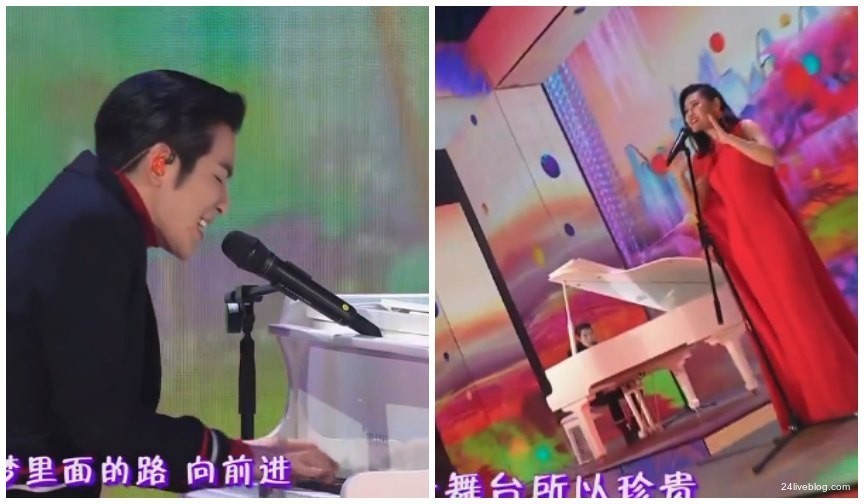
15/02 17:06 A New Year, A New Era
Happy New Year everyone! Just before and after the twelve o’clock moment, there is a clear focus on “China’s New Era”, a theme that is reiterated throughout the Gala tonight – emphasizing that time does not just mark a new year but also a new phase in the modernization of China.
15/02 17:16 East, West, China is Best
The third – and last – public service ad of tonight was titled “Fragrant Hometown” and focused on people living abroad or away from home and coming back to their hometowns and families, where everything is warm, loving, and fragrant. The service ad sends out a message that there is no place like (Chinese) home.
15/02 17:35 “Bright Shoes” Dance Act
A pretty cool and original dance act in the final minutes of tonight’s show, performed by the dancers of the Langzhong Spring Festival Culture and Folk Art Troupe, Xinghai Conservatory of Music, the Wuhan Art Troupe, and Sichuan University.
15/02 17:41 “I Love you China”
After the night’s last segment of sketch comedy and dance act, the 42nd performance of tonight, and the last song before the Gala’s traditional closing song, is by main singers Zhang Yingxi and Jin Tingting, accompanied by a group of international (opera) singers from, amongst others, Italy, USA, and Russia.
While the song is playing, we see images of people waving the Chinese flag and military staff.
15/02 17:44 It’s a Wrap: Unforgettable Night
The last song of this night is “Unforgettable Night” (难忘今宵). It is sung by the 73-year-old singer and dancer Li Guyi (李谷一) together with Huo Yong, Liu Yuxin, and Tang Fei.
Li Guyi sings the same song every year at the end of this show. The last song ends with all performers of the Beijing venue on stage. The hosts wish everyone a happy new year. It’s a wrap!
By Manya Koetse, with contributions via WeChat from Boyu Xiao, Diandian Guo, and Tim Peng
Follow @whatsonweibo
Spotted a mistake or want to add something? Please let us know in comments below or email us.
If you enjoy What’s on Weibo and support the way we report the latest trends in China, we would appreciate your donation. It does not need to be much; we can use every penny to help pay for the upkeep, maintenance, and betterment of this site. See this page for more information.
©2018 Whatsonweibo. All rights reserved. Do not reproduce our content without permission – you can contact us at info@whatsonweibo.com.
Manya Koetse is the founder and editor-in-chief of whatsonweibo.com. She is a writer, public speaker, and researcher (Sinologist, MPhil) on social trends, digital developments, and new media in an ever-changing China, with a focus on Chinese society, pop culture, and gender issues. She shares her love for hotpot on hotpotambassador.com. Contact at manya@whatsonweibo.com, or follow on Twitter.

China Arts & Entertainment
Singing Competition or Patriotic Fight? Hunan TV’s ‘Singer 2024’ Stirs Nationalistic Sentiments
“I’m in Zibo eating barbecue, I really don’t feel like listening to Alicia Keys.” Hunan TV’s ‘Singer 2024’ has set off a new wave of national pride in China’s music and performers.
Published
2 months agoon
May 17, 2024By
Ruixin Zhang
Besides memes and jokes, Hunan TV’s ‘Singer 2024’ has set off a new wave of national pride in China’s music and performers on Chinese social media.
In May, while the whole of Europe was gripped by the Eurovision Song Contest frenzy, Chinese audiences were eagerly anticipating the return of their own beloved singing competition, Singer 2024 (@湖南卫视歌手), formerly known as I Am a Singer (我是歌手).
The show, introduced from South Korea’s MBC Television and popular in China since 2013, only features professional singers who have already made a name for themselves.
Rather than watching unknown aspiring singers who are hoping to be discovered in many singing competitions, such as Sing! China, Singer 2024 gives audiences a show filled with professional and often stunning show performances by established names in the entertainment industry.
Since 2013, renowned singers from China and abroad have appeared on the show, including Chinese vocalist Tan Jing (谭晶), British pop singer Jessie J, and the late Hong Kong pop diva Coco Lee. However, no season managed to create as many waves as the 2024 season did, dominating all social media trending topics overnight.
So, what exactly happened?
COMPETING WITH FOREIGNERS
“The difference between the Grammys and the Strawberry Musical Festival”
In early May, the pre-show promotion of Singer 2024 was already buzzing on Chinese social media after a list of featured singers appeared on Weibo, including big names such as American singer-songwriter Bruno Mars, Korean-New Zealand singer Rosé from Blackpink, and Japanese diva LiSA.
Although Singer previously had many foreign singers on the show, this international celebrity lineup still caused a stir.
On the day of the first episode, only two foreign singers were announced to appear on the show: young Moroccan-Canadian singer Faouzia and the Grammy-nominated American singer-songwriter Chanté Moore. The other contestants were all Chinese singers who are already well-known among Chinese audiences. Because many people were unfamiliar with the two foreign singers, they joked that the winner of this season was already set in stone; surely it would be the famous Chinese singer Na Ying (那英), known for her beautiful voice.
However, that first episode surprised everyone as the two foreign singers, Faouzia and Chanté Moore, showed outstanding vocal skills. This not only startled many viewers but also made the Chinese contestants uneasy. Several experienced Chinese singers apparently were so unnerved after watching Faouzia and Chanté Moore’s performance that their voices trembled when singing.

Since the show was broadcast live – without post-production editing or autotune – audiences got to hear the actual vocal capabilities and see performers’ genuine reactions. It seemed undeniable that the foreign contestants did much better in terms of vocals and stage presence than the Chinese ones. Some online commenters even said that the gap between Chinese and foreign singers’ levels was like “the difference between the Grammys and the Strawberry Musical Festival” [a local Chinese music festival].
Chinese online influencer Yongkai (@陈咏开165) shared screenshots of Chanté Moore’s backstage reactions during the show. The American celebrity seemed puzzled when hearing the somewhat underwhelming performance by Chinese singer Yang Chenglin (楊丞琳), and she appeared much more positive when Na Ying sang.

This noteworthy scene, coupled with Chanté’s comments during an interview saying that she thought the Chinese production team had invited her on the show to be a judge, turned the entire show into a display of foreign singers outshining the Chinese contestants.
By the end of the first episode, Chanté Moore and Faouzia unsurprisingly ranked first and second, with Na Ying in third place.

After the show, some online commenters jokingly pointed out that Na Ying, being of Manchu descent like the rulers of China during the Qing Dynasty, showed some similarities to Empress Dowager Cixi’s defiance against Western colonizers in the way she “single-handedly took up against on foreigners” on the show.
They humorously turned Na Ying’s expressions into memes resembling Empress Dowager Cixi from an old Chinese TV show, with captions like “I want the foreigners dead” (“我要洋人死”).

Others suggested finding better Chinese singers for the show who could compete with Faouzia and Moore.
“SINGING WELL” CULTURALLY COLONIZED?
“I’m in Zibo eating BBQ, I really don’t want to listen to Alicia Keys.”
Initially, discussions about the show were light-hearted and humorous, until some netizens who couldn’t appreciate the jokes began to dampen the mood and made online discussions more serious.
Zou Xiaoying (@邹小樱), a music critic with nearly two million followers, posted on social media after the show, stating that he would have never voted for Chanté Moore or Faouzia. Not only did Zou question their vocal talent, he also wondered if the aesthetic of Chinese listeners had been influenced by Western music taste to such an extent that it has been “culturally colonized” (“文化殖民”). Meanwhile, he praised the members of Beijing rock band Second Hand Rose as “national heroes” (“民族英雄”).
He wrote:
If I had three votes for the first episode of “Singer 2024,” I’d vote for Second Hand Rose, Na Ying, and Silence Wang [note: Chinese singer-songwriter and record producer Wang Sushuang 汪苏泷]. The reason I wouldn’t vote for Chanté Moore or Faouzia is because — do they actually sing so well?
Has our definition of “singing well” perhaps been colonized? Just as our modern-day use of Chinese has little to do with our classical Chinese poems, with the foundation of modern Chinese actually being translations from the 20th century, is this also a form of ‘cultural colonization’?
You must think I’m talking nonsense again. But when I listen to Chanté Moore singing “If I Ain’t Got You,” I find it too boring. I know her singing is “good,” but this “good” has nothing to do with me. If, for Chinese listeners, Chanté Moore’s “good” is the standard, then is that what we in the music industry should be working towards? Isn’t that funny? When you open QQ Music or NetEase Cloud Music, and it recommends these songs to you every day, won’t you be convinced to practice again?
Of course, I know Chanté Moore is in good shape, very relaxed. Actually all of the Chinese singers tonight were very nervous. Yang Chenglin (杨丞琳) was nervous, Na Ying was also nervous. Even a seemingly carefree band like Second Hand Rose, if you listened to the introduction of their song, [you’ll find] they were so nervous that Yao Lan, supposedly “China’s No.1 Guitarist”, was so nervous that he hit the wrong note. It was not even a fast-paced solo (…), how nervous could he be? When everyone’s so tense, the confidence of Chanté Moore and Faouzia is indeed something that East Asia can’t match. In East-Asian [entertainment] circles, represented by China/Japan/Korea, our different cultural habits, upbringing, and ethnic characteristics have made it so that we don’t possess these kinds of singing abilities, even including our ways of emotional expression. I don’t know from which season it started with ‘Singer’ – and if it’s some kind of Catfish Effect (鲶鱼效应 ) – that they brought international singers with different cultural backgrounds into the competition. But this isn’t the Olympics, it’s not like Liu Xiang [刘翔, Chinese gold medal hurdler] is going to defeat opponents from the United States or Cuba. “I’m in Zibo eating barbecue, I really don’t feel like Alicia Keys.” (This line is not mine, I stole it from my WeChat friend).
Because of this, I find Second Hand Rose even more rare and precious. It’s just like I used to love asking: If you could only recommend one Chinese band to your foreign friends, which one would you recommend? Some say it’s New Pants (新裤子), some say it’s Omnipotent Youth Society, but my answer will always be Second Hand Rose. ‘The drama of Monkey King is a national treasure,’ its light will always shine. Facing the gunfire of Western powers, Second Hand Rose is standing on the frontline, they are our national heroes. Indeed, the band itself was nervous, (..), but when Chanté Moore goes off like a singing dolphin, we are fortunate to have Second Hand Rose at the frontline; the Chinese sons and daughters are building the Great Wall of Music of flesh and blood.
Because of this, I find Second Hand Rose even more rare and precious. It’s just like I used to love asking: If you could only recommend one Chinese band to your foreign friends, which one would you recommend? Some say it’s New Pants (新裤子), some say it’s Omnipotent Youth Society, but my answer will always be Second Hand Rose. ‘The drama of Monkey King is a national treasure,’ its light will always shine. Facing the gunfire of Western powers, Second Hand Rose is standing on the frontline, they are our national heroes. Indeed, the band itself was nervous, (..), but when Chanté Moore goes off like a singing dolphin, we are fortunate to have Second Hand Rose at the frontline; the Chinese sons and daughters are building the Great Wall of Music of flesh and blood.
Anyway, no matter if they’re strong or not, I would never vote for the foreigner.
The comment about ‘I’m in Zibo eating barbecue, I really don’t feel like [listening to] Alicia Keys’ refers to the craze surrounding China’s ‘BBQ town’ Zibo. In Zibo, Chinese visitors like to sing, drink beer, and enjoy food together; it’s a simple and modest way of appreciating life and music, which contrasts with slick and smooth American or foreign styles of performing and singing.
Whether Zou’s criticism was for attention or genuine sentiment, it shifted the focus of the discussion from music to patriotism.
CHINESE SINGERS WITH MILITARISTIC UNDERTONES
“I volunteer to join the battle”
Amidst all this, some netizens, easily swayed by nationalist sentiments, began to seek help from the “national team” (国家队) of singers — musicians employed by national-level arts troupes — to “bring glory to the nation” and teach the foreigners a lesson. Some even questioned the intentions of the Singer 2024 TV show in inviting foreign singers to participate.
On May 12th, renowned Chinese singer and philanthropist Han Hong (韩红) posted on Weibo, fueling a wave of sentiment and support. In her post, Han Hong declared, “I am Chinese singer Han Hong, and I volunteer to join the battle,” tagging the production team of the TV show. Her invitation to join the battle quickly went viral.

Han Hong meme: “Who called for me?”
Han Hong has significant influence in the Chinese music industry and society as a whole. Her usual serious demeanor and avoidance of internet pop culture made netizens unsure whether she was joking or serious. Nevertheless, regardless of her intentions, a group of well-known singers began to volunteer via Weibo, emphasizing their identity as “Chinese singers” and using phrases with strong militaristic undertones like “fighting for the country” and “answering the call.”
Although many enjoyed this new wave of national pride in Chinese music and performers, some netizens criticized the trend of transforming an entertainment show into a nationalistic competition.
Film critic He Xiaoqin (何小沁) stated, “It’s okay to take the Qing-Dynasty-fighting-foreigners comparison as a joke, but taking it too seriously in today’s context is absurd.”
Others expressed fatigue with how quickly topics on Chinese internet platforms escalate to patriotic sentiments. To bring the focus back to entertainment, they turned “I volunteer to join the battle” (#我请战#) into a new internet catchphrase.
In response, the production team of Singer 2024 released a statement on Weibo, thanking all the singers for their self-recommendations. They emphasized the show’s competitive structure but clarified that “winning” is just one part of a singer’s journey..but that the love of music goes beyond all in connecting people, no matter where they’re from.
By Ruixin Zhang, edited with further input by Manya Koetse
Independently reporting China trends for over a decade. Like what we do? Support us and get the story behind the hashtag by subscribing:
Spotted a mistake or want to add something? Please let us know in comments below or email us. First-time commenters, please be patient – we will have to manually approve your comment before it appears.
©2024 Whatsonweibo. All rights reserved. Do not reproduce our content without permission – you can contact us at info@whatsonweibo.com.
China Arts & Entertainment
“Old Bull Eating Young Grass”: 86-Year-Old Chinese Painter Fan Zeng Marries 36-Year-Old Xu Meng
Online reactions to the news of Fan’s marriage to Xu Meng, his fourth wife, reveal that the renowned artist is not particularly well-liked among Chinese netizens.
Published
3 months agoon
April 18, 2024
The recent marriage announcement of the renowned Chinese calligrapher/painter Fan Zeng and Xu Meng, a Beijing TV presenter 50 years his junior, has sparked online discussions about the life and work of the esteemed Chinese artist. Some netizens think Fan lacks the integrity expected of a Chinese scholar-artist.
Recently, the marriage of a 86-year-old Chinese painter to his bride, who is half a century younger, has stirred conversations on Chinese social media.
The story revolves around renowned Chinese artist, calligrapher, and scholar Fan Zeng (范曾, 1938) and his new spouse, Xu Meng (徐萌, 1988). On April 10, Fan announced their marriage through an online post accompanied by a picture.
In the picture, Fan is seen working on his announcement in calligraphic form.

Fan Zeng announces his marriage on Chinese social media.
In his writing, Zeng shares that the passing of his late wife, three years ago, left him heartbroken, and a minor stroke also hindered his work. He expresses gratitude for Xu Meng’s care, which he says led to his physical and mental recovery. Zeng concludes by expressing hope for “everlasting harmony” in their marriage.
Fan Zeng is a calligrapher and poet, but he is primarily recognized as a contemporary master of traditional Chinese painting. Growing up in a well-known literary family, his journey in art began at a young age. Fan studied under renowned mentors at the Academy of Fine Arts in Beijing, including Wu Zuoren, Li Keran, Jiang Zhaohe, and Li Kuchan.
Fan gained global acclaim for his simple yet vibrant painting style. He resided in France, showcased his work in numerous exhibitions worldwide, and his pieces were auctioned at Sotheby’s and Christie’s in the 1980s.[1] One of Fan’s works, depicting spirit guardian Zhong Kui (钟馗), was sold for over 6 million yuan (828,000 USD).

Zhong Kui in works by Fan Zeng.
In his later years, Fan Zeng transitioned to academia, serving as a lecturer at Nankai University in Tianjin. At the age of 63, he assumed the role of head of the Nankai University Museum of Antiquities, as well as holding various other positions from doctoral supervisor to honorary dean.
By now, Fan’s work has already become part of China’s twentieth-century art history. Renowned contemporary scholar Qian Zhongshu once remarked that Fan “excelled all in artistic quality, painting people beyond mere physicality.”
A questionable “role model”
Fan’s third wife passed away in 2021. Later, he got to know Xu Meng, a presenter at China Traffic Broadcasting. Allegedly, shortly after they met, he gifted her a Ferrari, sparking the beginning of their relationship.

A photo of Xu and her Hermes Birkin 25 bag has also been making the rounds on social media, fueling rumors that she is only in it for the money (the bag costs more than 180,000 yuan / nearly 25,000 USD).
On Weibo, reactions to the news of Fan’s marriage to Xu Meng, his fourth wife, reveal that the renowned artist is not particularly well-liked among netizens. Despite Fan’s reputation as a prominent philanthropist, many perceive his recent marriage as yet another instance of his lack of integrity and shamelessness.

Fan Zeng and Xu Meng. Image via Weibo.
One popular blogger (@好时代见证记录者) sarcastically wrote:
“Warm congratulations to the 86-year-old renowned contemporary erudite scholar and famous calligrapher Fan Zeng, born in 1938, on his marriage to Ms Xu Meng, a 50 years younger 175cm tall woman who is claimed to be China’s number one golden ratio beauty. Mr Fan Zeng really is a role model for us middle-aged greasy men, as it makes us feel much less uncomfortable when we’re pursuing post-90s youngsters as girlfriends and gives us an extra shield! Because if contemporary Confucian scholars [like yourself] are doing this, then we, as the inheritors of Confucian culture, can surely do the same!“
Various people criticize the fact that Xu Meng is essentially just an aide to Fan, as she can often be seen helping him during his work. One commenter wrote: “Couldn’t he have just hired an assistant? There’s no need to turn them into a bed partner.”
Others think it’s strange for a supposedly scholarly man to be so superficial: “He just wants her for her body. And she just wants him for his inheritance.”
“It’s so inappropriate,” others wrote, labeling Fan as “an old bull grazing on young grass” (lǎoniú chī nèncǎo 老牛吃嫩草).
Fan is not the only well-known Chinese scholar to ‘graze on young grass.’ The famous Chinese theoretical physicist Yang Zhenning (杨振宁, 1922), now 101 years old, also shares a 48-year age gap with his wife Weng Fen (翁帆). Fan, who is a friend of Yang’s, previously praised the love between Yang and Weng, suggesting that she kept him youthful.

Older photo posted on social media, showing Fan attending the wedding ceremony of Yang Zhenning and his 48-year-younger partner Weng Fen.
Some speculate that Fan took inspiration from Yang in marrying a significantly younger woman. Others view him as hypocritical, given his expressions of heartbreak over his previous wife’s passing, and how there’s only one true love in his lifetime, only to remarry a few years later.
Many commenters argue that Fan Zeng’s conduct doesn’t align with that of a “true Confucian scholar,” suggesting that he’s undeserving of the praise he receives.
“Mr. Wang from next door”
In online discussions surrounding Fan Zeng’s recent marriage, more reasons emerge as to why people dislike him.
Many netizens perceive him as more of a money-driven businessman rather than an idealistic artist. They label him as arrogant, critique his work, and question why his pieces sell for so much money. Some even allege that the only reason he created a calligraphy painting of his marriage announcement is to profit from it.
Others cast doubt on his status as a Chinese calligraphy ‘grandmaster,’ noting that his calligraphy style is not particularly impressive and may contain typos or errors. His wedding announcement calligraphy appears to blend traditional and simplified characters.

Netizens have pointed out what looks like errors or typos in Fan’s calligraphy.
Another source of dislike stems from his history of disloyalty and his feud with another prominent Chinese painter, Huang Yongyu (黄永玉). Huang, who passed away in 2023, targeted Fan Zeng in some of his satirical paintings, including one titled “When Others Curse Me, I Also Curse Others” (“人骂我,我亦骂人”). He also painted a parrot, meant to mock Fan Zeng’s unoriginality.

Huang Yongyu made various works targeting Fan Zeng.
In retaliation, Fan produced his own works mocking Huang, sparking an infamous rivalry in the Chinese art world. The two allegedly almost had a physical fight when they ran into each other at the Beijing Hotel.

Fan Zeng mocked Huang Yongyu in some of his works.
Fan and Huang were once on good terms though, with Fan studying under Huang at the Central Academy of Fine Arts in Beijing. Through Huang, Fan was introduced to the renowned Chinese novelist Shen Congwen (沈从文, 1902-1988), Huang’s first cousin and lifelong friend. As Shen guided Fan in his studies and connected him with influential figures in China’s cultural circles, their relationship flourished.
However, during the Cultural Revolution, when Shen was accused of being a ‘reactionary,’ Fan Zeng turned against him, even going as far as creating big-character posters to criticize his former mentor.[2] This betrayal not only severed the bond between Shen and Fan but also ended Fan’s friendship with Huang, and it is still remembered by people today.
Fan Zeng’s behavior towards another former mentor, the renowned painter Li Kuchan (李苦禪, 1899-1983), was also controversial. Once Fan gained fame, he made it clear that he no longer respected Li as his teacher. Li later referred to Fan as “a wolf in sheep’s clothes,” and apparently never forgave him. Although the exact details of their falling out remain unclear, some blame Fan for exploiting Li to further his own career.
There are also some online commenters who call Fan Zeng a “Mr Wang from next door” (隔壁老王), a term jokingly used to refer to the untrustworthy neighbor who sleeps with one’s wife. This is mostly because of the history of how Fan Zeng met his third wife.
Fan’s first wife was the Chinese female calligrapher Lin Xiu (林岫), who came from a wealthy family. During this marriage, Fan did not have to worry about money and focused on his artistic endeavours. The two had a son, but the marriage ended in divorce after a decade. Fan’s second wife was fellow painter Bian Biaohua (边宝华), with whom he had a daughter. It seems that Bian loved Fan much more than he loved her.
It is how he met his third wife that remains controversial to this day. Nan Li (楠莉), formerly named Zhang Guiyun (张桂云), was married to performer Xu Zunde (须遵德). Xu was a close friend of Fan, and helped him out when Fan was still poor and trying to get by while living in Beijing’s old city center.
Wanting to support Fan’s artistic talent, Xu let Fan Zeng stay over, supported him financially, and would invite him for meals. Little did he know that while Xu was away to work, Fan enjoyed much more than meals alone; Fan and Xu’s wife engaged in a secret decade-long affair.
When the affair was finally exposed, Xu Zunde divorced his wife. Still, they would use his house to meet and often locked him out. Three years later, Nan Li officially married Fan Zeng. Xu not only lost his wife and friend but also ended up finding his house emptied, his two sons now bearing Fan’s surname.
When Nan Li passed away in 2021, Fan Zeng published an obituary that garnered criticism. Some felt that the entire text was actually more about praising himself than focusing on the life and character of his late wife, with whom he had been married for forty years.

Fan Zeng and his four wives
An ‘old pervert’, a ‘traitor’, a ‘disgrace’—there are a lot of opinions circulating about Fan that have come up this week.
Despite the negativity, a handful of individuals maintain a positive outlook. A former colleague of Xu Meng writes: “If they genuinely like each other, age shouldn’t matter. Here’s to wishing them a joyful marriage.”
By Manya Koetse
[1]Song, Yuwu. 2014. Biographical Dictionary of the People’s Republic of China. United Kingdom: McFarland & Company, 76.
[2]Xu, Jilin. 2024. “Xu Jilin: Are Shen Congwen’s Tears Related to Fan Zeng?” 许纪霖:沈从文的泪与范曾有关系吗? The Paper, April 15. https://www.thepaper.cn/newsDetail_forward_27011031. Accessed April 17, 2024.
Independently reporting China trends for over a decade. Like what we do? Support us and get the story behind the hashtag by subscribing:
Spotted a mistake or want to add something? Please let us know in comments below or email us. First-time commenters, please be patient – we will have to manually approve your comment before it appears.
©2024 Whatsonweibo. All rights reserved. Do not reproduce our content without permission – you can contact us at info@whatsonweibo.com.
Subscribe

Weibo Watch: The Future is Here

“Bye Bye Biden”: Biden’s Many Nicknames in Chinese

Enjoying the ‘Sea’ in Beijing’s Ditan Park

A Triumph for “Comrade Trump”: Chinese Social Media Reactions to Trump Rally Shooting

Weibo Watch: Get Up, Stand Up

The Tragic Story of “Fat Cat”: How a Chinese Gamer’s Suicide Went Viral

“Old Bull Eating Young Grass”: 86-Year-Old Chinese Painter Fan Zeng Marries 36-Year-Old Xu Meng

A Brew of Controversy: Lu Xun and LELECHA’s ‘Smoky’ Oolong Tea

Singing Competition or Patriotic Fight? Hunan TV’s ‘Singer 2024’ Stirs Nationalistic Sentiments

Zara Dress Goes Viral in China for Resemblance to Haidilao Apron

Weibo Watch: The Battle for the Bottom Bed

About the “AI Chatbot Based on Xi Jinping” Story

China’s Intensified Social Media Propaganda: “Taiwan Must Return to Motherland”

Weibo Watch: Telling China’s Stories Wrong

Saying Goodbye to “Uncle Wang”: Wang Wenbin Becomes Chinese Ambassador to Cambodia
Get in touch
Would you like to become a contributor, or do you have any tips or suggestions? Get in touch here!
Popular Reads
-

 China Insight3 months ago
China Insight3 months agoThe Tragic Story of “Fat Cat”: How a Chinese Gamer’s Suicide Went Viral
-

 China Music4 months ago
China Music4 months agoThe Chinese Viral TikTok Song Explained (No, It’s Not About Samsung)
-

 China Digital10 months ago
China Digital10 months agoToo Sexy for Weibo? Online Discussions on the Concept of ‘Cābiān’
-

 China Arts & Entertainment12 months ago
China Arts & Entertainment12 months agoBehind 8 Billion Streams: Who is Dao Lang Cursing in the Chinese Hit Song ‘Luocha Kingdom’?

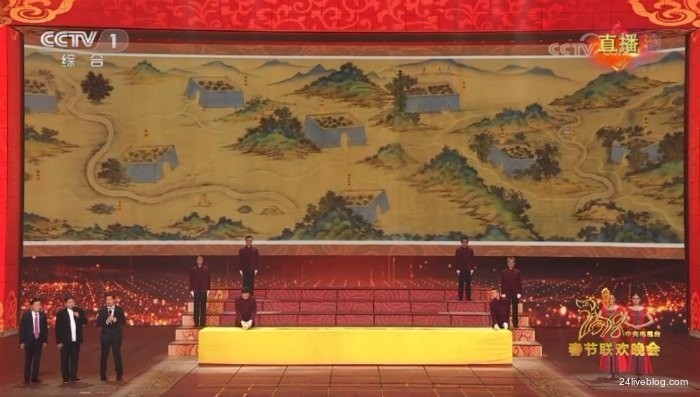

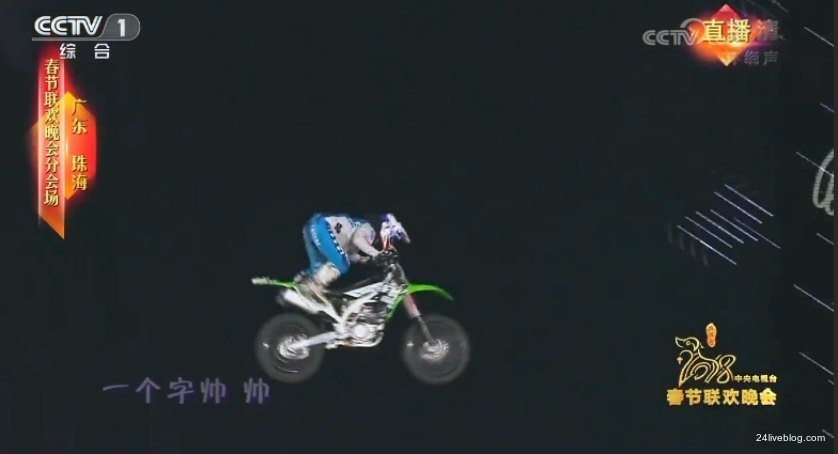
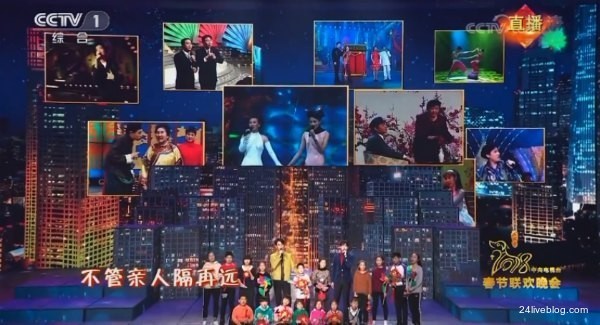
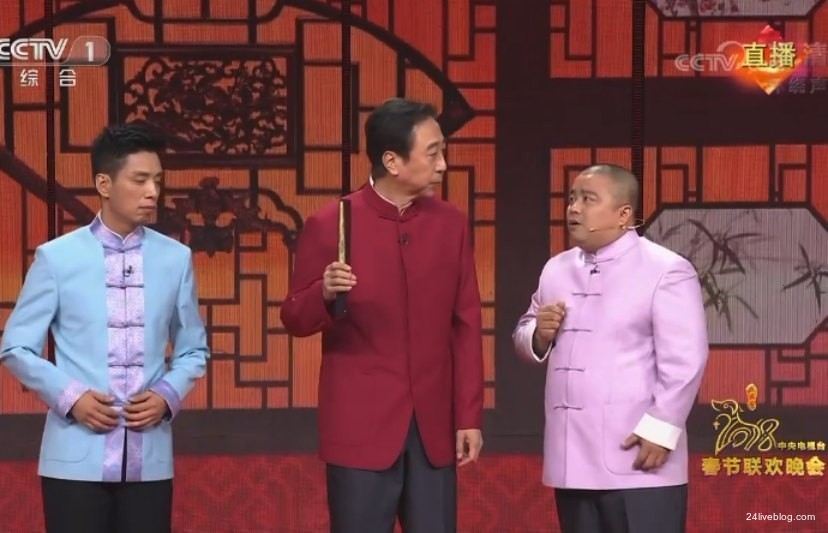

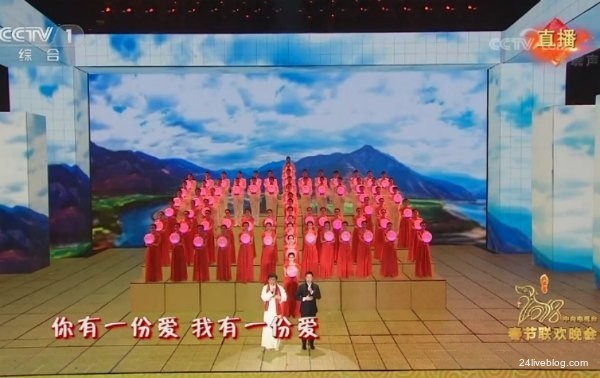
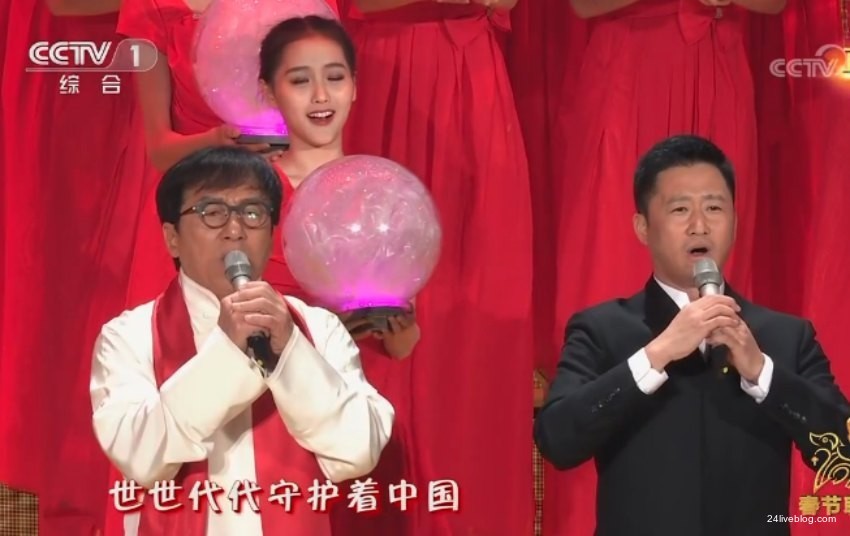
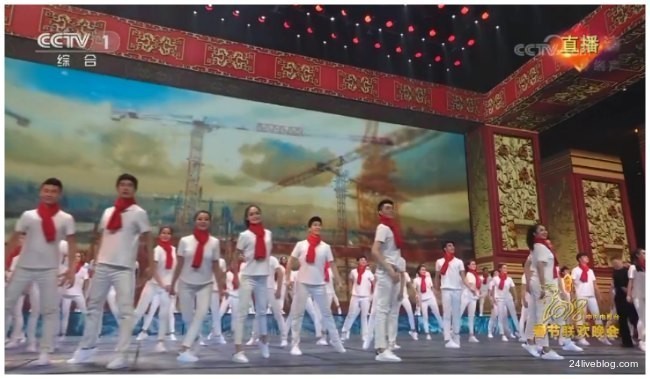
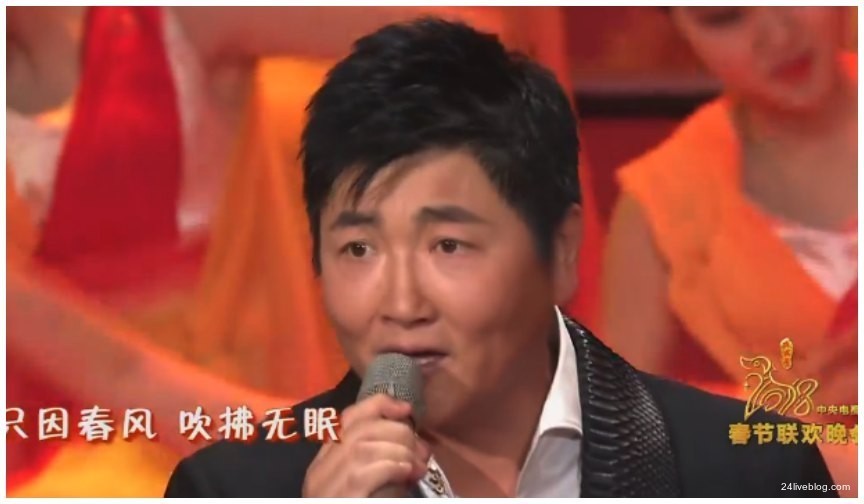
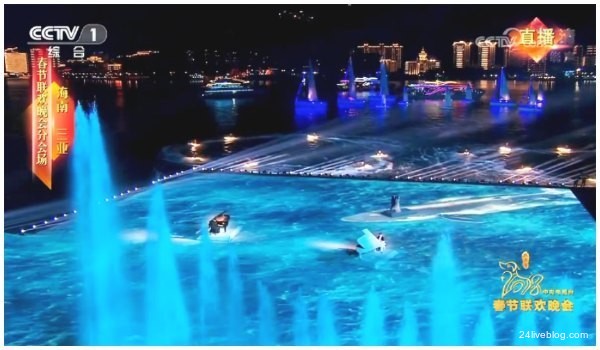
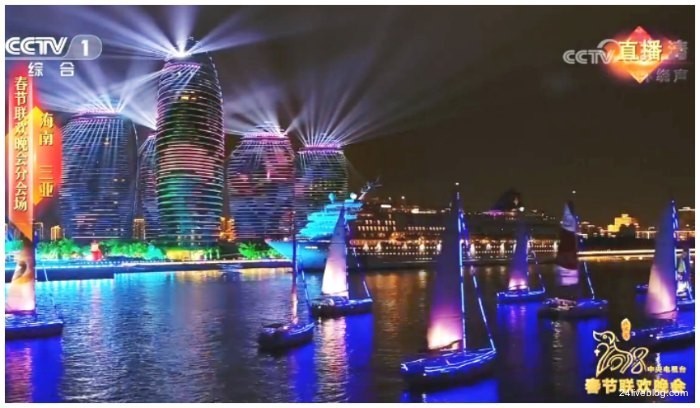
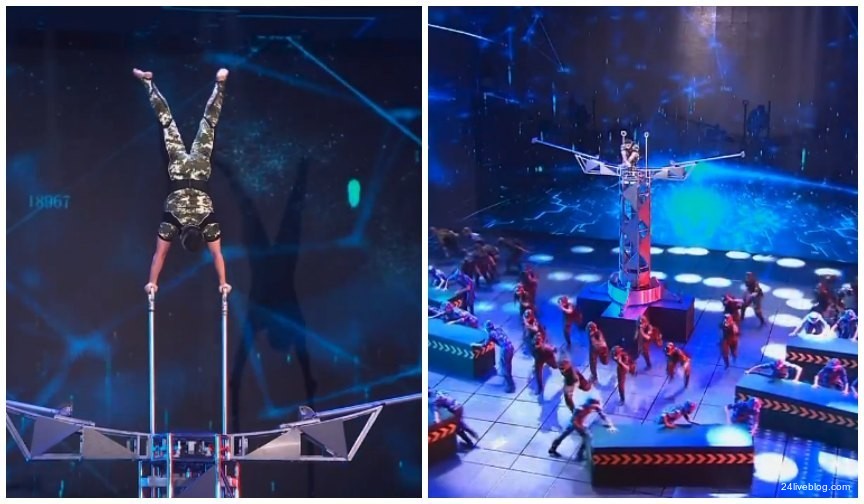
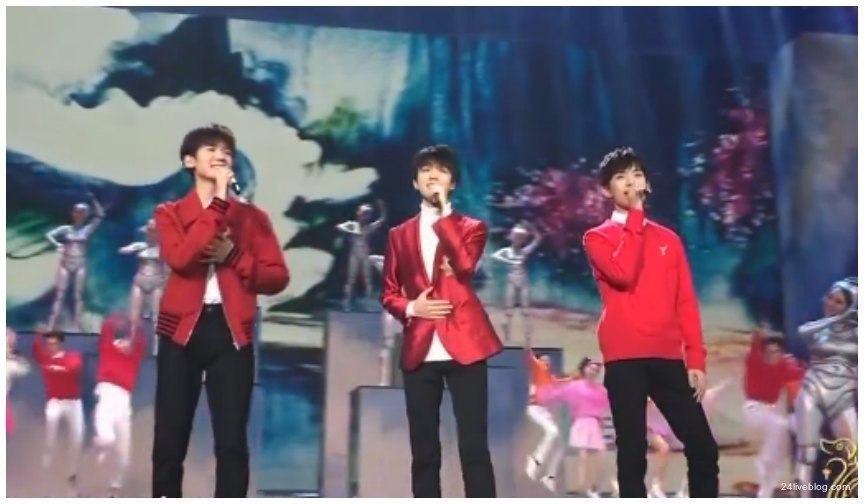
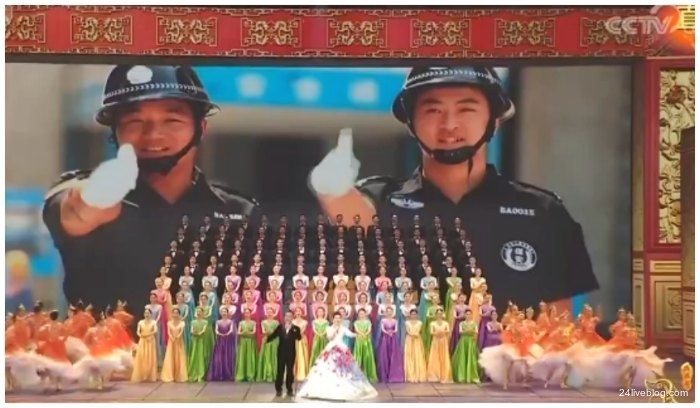
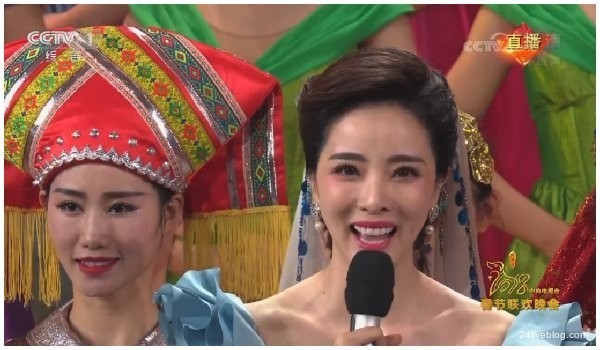

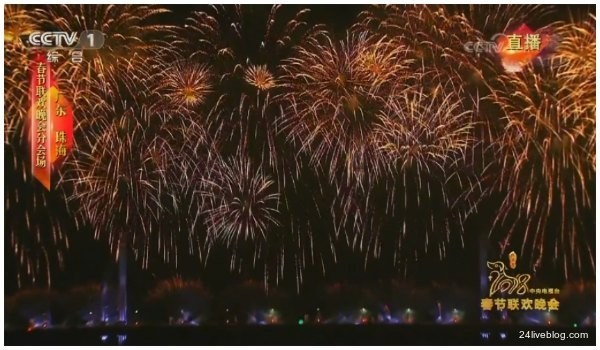
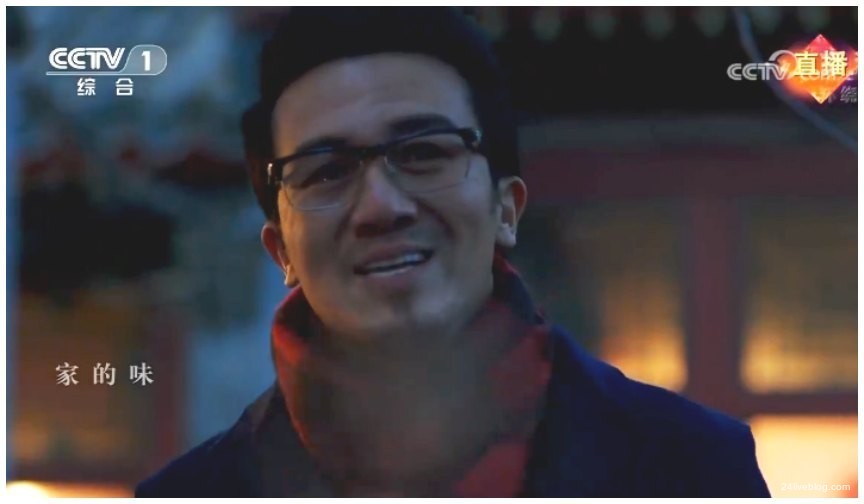

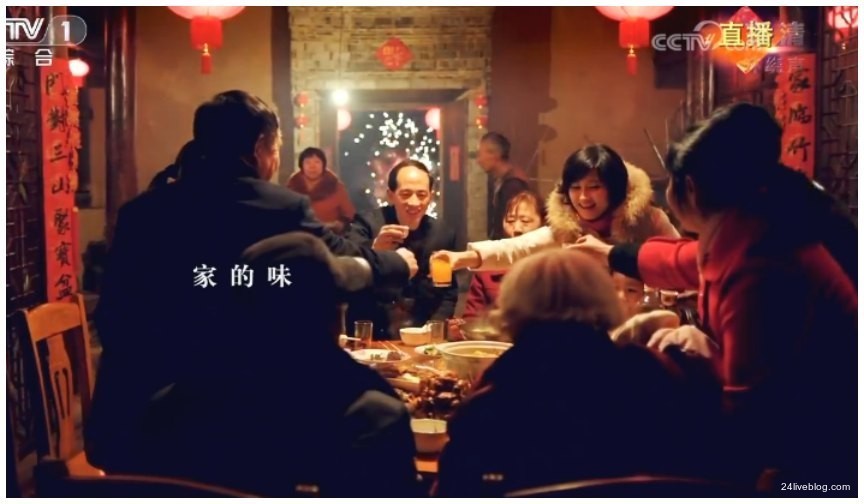

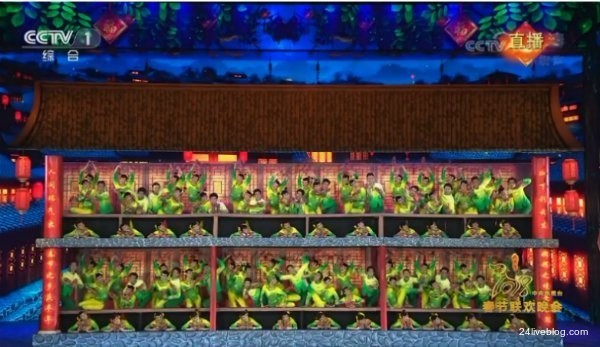

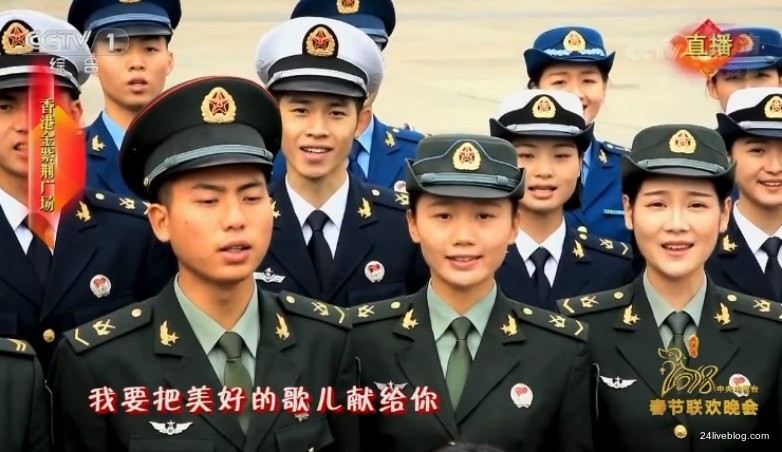

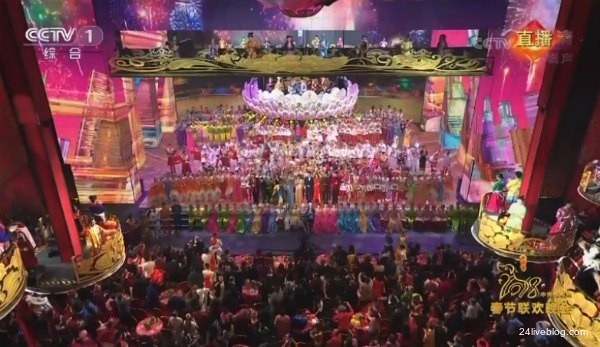




Andrea Ismail
February 19, 2018 at 10:04 am
So just asking, why in the song part with Dimash, Tia and Haiso, you only has Tia and Haiso picture but not Dimash. In fact he was the one that stood out on social media, is it fair to only put Tia and Haiso picture on your Blog but not Dimash. I don’t think so that is really how he is used for his talent but you can’t even put his picture.